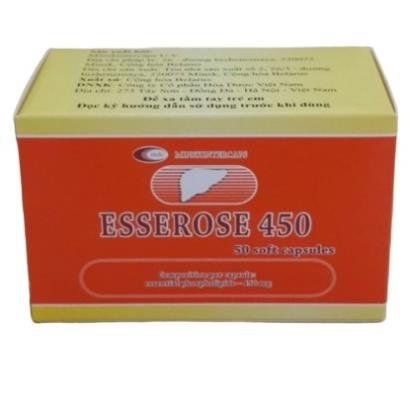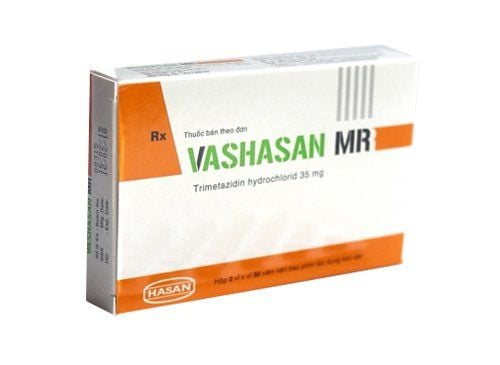This is an automatically translated article.
Allvitamine medicine as a drug to support many essential vitamins for the body. To answer frequently asked questions: What is Allvitamine, how to use and dosage Allvitamine and the notes and side effects of the drug. Join us for more information through this article.
1. What is Allvitamine?
Allvitamine is a multivitamin containing many different active ingredients: Vitamin A (Retinol acetate); Vitamin B1 (Thiamine hydrochloride); Vitamin B2 (Riboflavin); Vitamin B6 (Pyridoxine HCl); Vitamin B5 (Calcium pantothenate); Vitamin PP (Nicotiamide); Vitamin E (Alpha tocopherol acetate).
Allvitamine is indicated in the following cases:
Enhance vitality in the state of weakness, emaciation, anemia, fatigue, anorexia, severe mental breakdown, convalescence period, women pregnant. Actively support in treatment in chronic diseases, drug addicts, atherosclerotic diseases, old age diseases. Conditions of extreme stress due to mental work anxiety. Children with growth retardation are malnourished and have had respiratory infections. Night blindness, dry eyes, eye color vision disorder. Fish scale disease, acne Disease Dry hair brittle hair, toenails, fingernails are changed. Premenstrual syndrome, menopausal disorders, vulvar atrophy. Loss of smell, chronic nasopharyngitis, deafness due to poisoning, tinnitus. Respiratory and digestive infections Prevention of vitamin A deficiency in newly ill people, lactating women, hyperthyroidism. Allvitamins are contraindicated for use in the following cases:
Hypersensitivity to one of the ingredients of the drug (Excipients: Tapioca starch, magnesium stearate, calcium carbonate, gelatin, benzoic acid, white beeswax, white sugar, PVP, brown iron oxide color). Severe liver disease, progressive peptic ulcer, arterial bleeding, severe hypotension. Precautions while using Vitamin B6 Do not use while taking Levodopa, unless in combination with a dopadecarboxylase inhibitor.
2. Dosage of Allvitamins
2.1. Dosage of Allvitamine for oral administration. The recommended dosage of the drug is specifically guided below:
Adults: Take 2 - 3 tablets each time, 2 - 3 times a day. Children: Take 1 capsule each time, 2 to 3 times a day. Note: This dosage guide is for reference only. The specific dose for each patient depends on the condition and the progression of the disease. To find out the right dose, consult your doctor or healthcare professional.
2.2. What to do in case of overdose? Vitamin A:
High doses and prolonged use may lead to vitamin A toxicity. Some symptoms of this condition are:
Fatigue, irritability Loss of appetite, weight loss, vomiting, digestive disorders Liver fever Enlarged spleen Altered skin Hair loss, dry hair, cracked lips and bleeding lips Anemia Headache High blood calcium Pain in bones and joints. In children, the disease manifests as increased intracranial pressure, papilledema, and visual disturbances. With discontinuation of the drug, the symptoms will soon disappear but no bone growth due to early ossification.
Vitamin B6: Long-term and high doses of over 200 mg/day, over 2 months of continuous use lead to vitamin B6 toxicity, which may manifest peripheral neuropathy.
Vitamin PP:
Small doses of vitamin PP are usually not toxic. However, taking high doses of vitamin PP (as in the treatment of Pellagra: 1500 mg/day) can lead to a dangerous overdose of vitamin PP. Vitamin PP overdose has no specific antidote. Use usual measures such as induction of vomiting, gastric lavage, relevant symptomatic treatment and active support. If there is an overdose, take the patient to the nearest medical facility for timely treatment.
If you forget to take a dose, take it as soon as you remember. However, if it is almost time for your next dose, skip the missed dose and take your next dose at the usual time. Always use double the prescribed dose.
3. Side effects of the drug Allvitamin
When using Allvitamins, there may be unwanted side effects (ADRs).
Side effects of Vitamin A: Fatigue, irritability, loss of appetite, weight loss when taking high doses of vitamin A for a long time. Side effects of Vitamin B1: Very rarely when taken, usually in an allergic pattern. Side effects of Vitamin B6: Doses of 200 mg/day and longer than 2 months can cause severe peripheral neuropathy, side effects may progress from unsteady gait, frostbite to frostbite and clumsy hands. This condition can be reversed when the drug is stopped, but leaves more or less sequelae later, so it needs special attention. Side effects of Vitamin PP: When taking a high dose of 300 - 500 mg/day, there may be many undesirable effects, but these will disappear when you stop using the drug: nausea, flushing of the face and neck, itching, cold. burning sensation, progressive peptic ulcer, vomiting, loss of appetite, diarrhea, increased sebaceous glands. When experiencing side effects of Allvitamin, it is necessary to stop using it immediately and notify the doctor or go to the nearest medical facility for timely treatment.
4. Notes when taking Allvitamins
After long-term use of pyridoxine at doses from 200 mg/day, neurotoxic manifestations such as peripheral neuropathy and severe sensory neuropathy may be observed. Doses of 200 mg daily for more than 30 days can cause pyridoxine dependence syndrome.
Vitamin PP
Caution when using high doses of nicotinamide for the following cases:
History of stomach ulcers Gallbladder disease History of jaundice or liver disease Gout, gouty arthritis Diabetes. Vitamin A
Be careful when taking other medicines containing vitamin A. Pregnant women who take more than 10,000 IU of vitamin A in one day will harm the unborn baby. Limited ability to drive and operate machinery
5. Drug interactions
Vitamin A: Neomycin, cholestyramine, liquid paraffin reduce the absorption of vitamin A. Oral contraceptives can increase vitamin A plasma concentrations and be unfavorable in conception. Vitamin B2: Alcohol interferes with the absorption of vitamin B2 in the intestines. Probenecid used with vitamin B2 causes reduced absorption of vitamin B2 in the stomach and intestines. Vitamin B5: Several substances antagonize the action of vitamin B5. Vitamin B6: Reduces the effect of the drug levodopa in the treatment of Parkinson's disease; This does not happen with a mixture of levodopa - carbidopa or levodopa - benserazid. Vitamin PP: Concomitant use with HGM-CoA reductase inhibitors may increase the risk of rhabdomyolysis. Concomitant use with hepatotoxic drugs may increase hepatotoxicity. Like many other drugs, before taking Allvitamine, patients need to carefully read the instructions for use, if they have any questions, they can discuss more with their doctor for the necessary indications.
Please dial HOTLINE for more information or register for an appointment HERE. Download MyVinmec app to make appointments faster and to manage your bookings easily.













